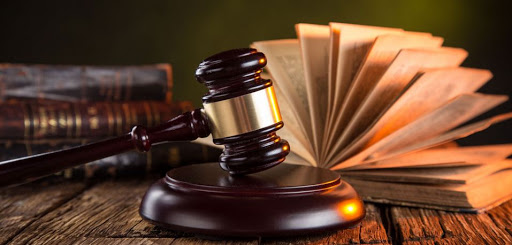The Small Business Administration, the Department of Treasury and the Internal Revenue Service continue to offer additional guidance to borrowers regarding loans received under the Paycheck Protection Program. Recently, two new pieces of guidance were issued that may be of particular interest to business owners.
1.) Are otherwise deductible expenses paid from the proceeds of a PPP Loan deductible if the PPP loan is ultimately forgiven?
Short answer, no.
Many businesses have obtained loans under the Paycheck Protection Program (“PPP”), established under the CARES Act (the “Act”) to provide loans (“PPP Loans”) to businesses adversely affected by the COVID-19 pandemic. The Act provides that all or a part of such loans may be forgiven if used to fund payroll costs, mortgage interest payments, rent, or covered utilities.
Generally, the forgiveness of a loan is treated as income for tax purposes. The Act, however, provides that any amount of a PPP Loan that would otherwise be treated as income as a result of loan forgiveness shall be excluded from gross income for federal income tax purposes.
The Act does not expressly state whether otherwise deductible expenses funded with a PPP Loan are deductible for federal income tax purposes when all or part of the loan is forgiven.
The IRS has now issued Notice 2020-32 on this question. It “clarifies” that no deduction is allowed for an otherwise deductible expense funded with the proceeds of a PPP Loan to the extent of any loan forgiveness. This means that businesses who use their PPP Loan on forgivable expenses will not be able to deduct such expenses on their taxes.
The rationale for the Notice’s conclusion is that expenses allocable to tax-exempt income are not deductible. PPP Loans that are forgiven constitute a class of tax-exempt income. Because PPP Loan forgiveness is directly tied to the payment of certain expenses, those expenses are allocable to the tax-exempt income. Therefore, the expenses are not deductible. The treatment prevents a taxpayer from enjoying a double benefit—loan forgiveness and a tax deduction for the expenses giving rise to the loan forgiveness.
While the Notice applies only to federal income taxes, states are likely to follow it.
2.) If a business has already received a PPP Loan – does that mean that they necessarily qualified for such PPP Loan?
Unfortunately, under additional guidance, the answer may now be “no.”
While one would think that if an application was approved, that means that the business qualified for the PPP Loan program, that may not be the case. Following the uproar that resulted over news that PPP Loans have been received by certain large and publicly traded companies that appeared to be in strong financial shape, the SBA has now issued additional guidance, including FAQ #31:
“Question: Do businesses owned by large companies with adequate sources of liquidity to support the business’s ongoing operations qualify for a PPP loan?
Answer: In addition to reviewing applicable affiliation rules to determine eligibility, all borrowers must assess their economic need for a PPP Loan under the standard established by the CARES Act and the PPP regulations at the time of the loan application. Although the Act suspends the ordinary requirement that borrowers must be unable to obtain credit elsewhere…borrowers still must certify in good faith that their PPP loan request is necessary. Specifically, before submitting a PPP Loan application, all borrowers should review carefully the required certification that “[c]urrent economic uncertainty makes this loan request necessary to support the ongoing operations of the Applicant.” Borrowers must make this certification in good faith, taking into account their current business activity and their ability to access other sources of liquidity sufficient to support their ongoing operations in a manner that is not significantly detrimental to the business.
For example, it is unlikely that a public company with substantial market value and access to capital markets will be able to make the required certification in good faith, and such a company should be prepared to demonstrate to the Small Business Administration (“SBA”), upon request, the basis for its certification.
Lenders may rely on a borrower’s certification regarding the necessity of the loan request. Any borrower that applied for a PPP Loan prior to the issuance of this guidance and repays the loan in full by May 7, 2020 will be deemed by the SBA to have made the required certification in good faith.”
While this FAQ raises more questions than it answers, this additional guidance, paired with the Treasury Department’s announcement that it will review all loans in excess of $2million, in addition to other loans as appropriate (see FAQ #39), and the notice that private companies may also fall under FAQ #31’s guidance (see FAQ #37) makes clear that the PPP Loans and applications for forgiveness will be reviewed with more scrutiny than the initial applications may have been. Businesses should be prepared to support their certification that “[c]urrent economic uncertainty makes this loan request necessary to support the ongoing operations of the Applicant” if challenged.
The issues concerning PPP Loan eligibility and forgiveness are evolving as more guidance is issued. If you have any questions about the Paycheck Protection Program, other issues related to the COVID-19 pandemic, or any other legal issue, please contact your FOS attorney.
Be well.





